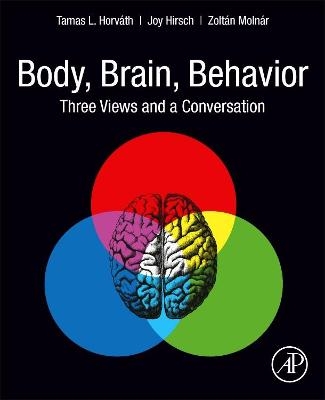
Body, Brain, Behavior
Academic Press Inc (Verlag)
978-0-12-818093-8 (ISBN)
Dr. Horvath is the Jean and David W. Wallace Professor and Chair of the Department of Comparative Medicine and Professor of Neurobiology and Ob/Gyn at Yale University School of Medicine, New Haven, Connecticut. He is also the Founding Director for the Yale Program on Integrative Cell Signaling and Neurobiology of Metabolism and member of the Interdepartmental Neuroscience Program at Yale Graduate School. He received a Doctor of Veterinary Medicine (D.V.M.) degree from the Faculty of Veterinary Sciences in Budapest, Hungary, and a Doctor of Philosophy (Ph.D.) degree from the University of Szeged in Hungary. His research is focused on neuronal circuitries that support physiological and pathological homeostatic conditions, including processes associated with reproduction, energy metabolism and neurodegeneration. Dr. Hirsch is Professor of Comparative Medicine, Psychiatry and member of the Interdepartmental Neuroscience Program at Yale Graduate School. She received a Bachelor of Science (BS) degree from the University of Oregon, a Master of Art (MA) in Experimental Psychology from Portland State University, and, Doctor of Philisophy (PhD) from Columbia University. Research in the Hirsch Lab at the Yale School of Medicine aims to understand the neural circuitry and fundamental mechanisms of the brain that enable human cognition, language, emotion, decision making, and perception in both healthy/typical individuals and in patients with neurological, developmental, and psychiatric disorders. Zoltan Molnar obtained his M.D. (summa cum laude) at the Albert Szent-Györgyi Medical University, Szeged, Hungary where he started his residency in Neurological Surgery in the institute of Professor Mihaly Bodosi until moving to Oxford in 1989. He obtained his D.Phil. at the University Laboratory of Physiology in the laboratory of Professor Colin Blakemore FRS studying the “Multiple mechanisms in the establishment of thalamocortical innervation. He continued his work on cerebral cortical development at Oxford as an MRC training fellow and Junior Research Fellow at Merton College. He also investigated thalamocortical development working with Professor Egbert Welker at the Institut de Biologie Cellulaire et de Morphologie, Université de Lausanne, Switzerland, and learned optical recording techniques to understand early functional thalamocortical interactions in the laboratory of Professor Keisuke Toyama at Kyoto Prefectural School of Medicine, Japan. He was appointed to a University Lecturer position at the Department of Human Anatomy and Genetics associated with a Tutorship at St John's College, Oxford from 2000. He was awarded the title Professor of Developmental Neuroscience in 2007. Previously he served as Director of Graduate Studies (2001-3) and Deputy Head of Department (2013-4). He is associated to Charité-Universitätsmedizin Berlin (Host Prof Britta Eickholt) as Einstein Visiting Fellow (2020-2024).
1. What is a brain? 2. Call to action for new conceptual framework 3. Big-brain/small-brain models and controversy 4. Historical black-box models of the brain 5. Eating: linking brain, body, and food 6. Action: linking brain, muscular-skeletal system, and running about 7. Reproduction: Linking, brain, reproductive systems, and love 8. One-brain, one plus one brain, one coupled brain 9. Final integration
| Erscheinungsdatum | 28.01.2022 |
|---|---|
| Zusatzinfo | 100 illustrations (50 in full color); Illustrations |
| Verlagsort | San Diego |
| Sprache | englisch |
| Maße | 191 x 235 mm |
| Gewicht | 950 g |
| Themenwelt | Geisteswissenschaften ► Psychologie ► Entwicklungspsychologie |
| Naturwissenschaften ► Biologie ► Humanbiologie | |
| Naturwissenschaften ► Biologie ► Zoologie | |
| ISBN-10 | 0-12-818093-5 / 0128180935 |
| ISBN-13 | 978-0-12-818093-8 / 9780128180938 |
| Zustand | Neuware |
| Informationen gemäß Produktsicherheitsverordnung (GPSR) | |
| Haben Sie eine Frage zum Produkt? |
aus dem Bereich


